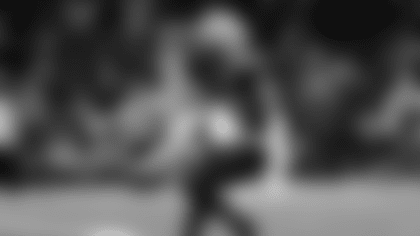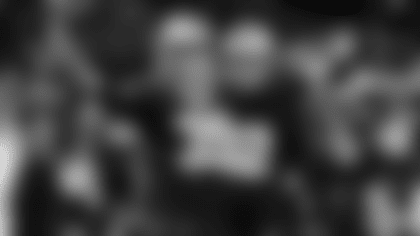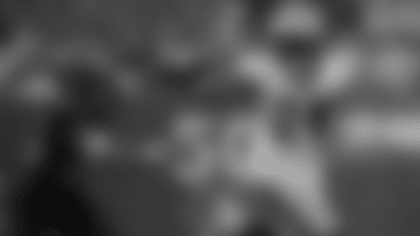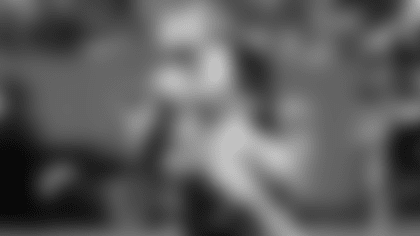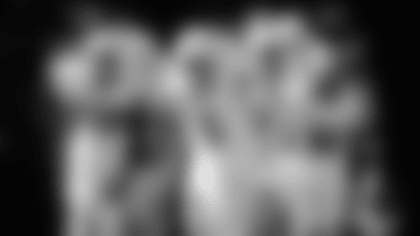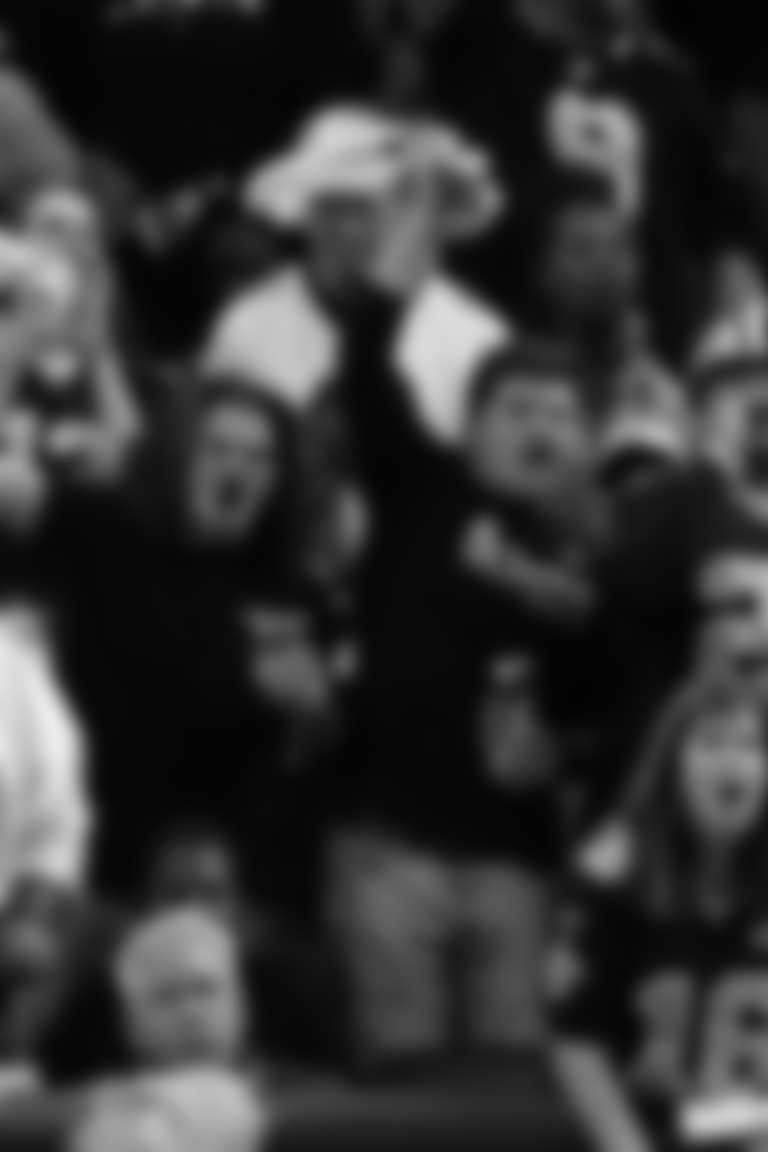New Orleans Saints Head Coach Sean Payton
Conference Call With New Orleans Media
Wednesday, October 6, 2021
What are some things you would say that stands out about the Seahawks?
"Looking back at some of the things about Pete's (Carroll) teams since 2010, they have always played really good special teams, there's always a commitment to running the football and defending the run. You receive a few different looks on defense that I would say are fairly new relative to maybe two years ago and yet, they still play a fair amount of zone coverage. They force you to come underneath with the football. They are a big play team offensively with two explosive receivers that get down the field and you see it on tape when you are watching both (D.K.) Metcalf and (Tyler (Lockett)."
What are some of the elements that make a team a good red zone defense?
"Generally speaking you need to handle the running game and you have to tackle well. It's a shorter, smaller area. I think generally speaking, teams that are efficient and effective in the red zone offensively have a balance and they're able to run the ball. A three-yard gain is a good gain. Conversely on the other side, we talk all the time on third down in the red zone and getting off the field is a four-point play (forcing a field goal), so ultimately if you look at a red zone stop and let's say and opponent kicks a field goal, there's probably been at least one third down defensed and if you look at a red zone score, not always but probably you have had to convert a third down. There are a few different elements there."
The Saints are 18-2 in the first four games after a bye the past five years. Is there anything you attribute it to that?
"I've told this story before. As coaches you're always looking inward and then outside, evaluating how others are doing it and Andy Reid was in Philadelphia. At that time, he was 11-1 after the bye (in the game after the bye) and I remember spending some time with just a quick call and he kind of went through what he tries to do during that time. Rules have changed a little, but this bye is more unique than I can recall than in the past just because of the amount of players that have been injured. We just finished telling our players that there are a handful of projections in the next week or two and I told them it's blurry. There are a lot of different scenarios. Our job is not to clean that up for you guys (competitively). It's different, so I think rest, recovery and then the focus coming back with obviously a Monday night game and a quick turnaround from a West Coast Monday night game to a Sunday game (Halloween vs. Tampa Bay)."
Can you talk about this no excuses, nobody cares mentality that you have with your team and how hard it is to implement given human nature in today's society?
"If you're not careful, the coach, the player, you don't have to be in sport, it could be business, anything…It can become habitual for a person to build in their reason for not having success. We all want to have success. That can be obviously more than just detrimental, that can be fatal. You've planted a seed if things don't go well. (Creating excuses) such as this didn't feel good or it was a short week…I just think it's attacking that in the beginning and on the front end, saying nobody's asking about those things, two, three weeks from now. Seattle has a number of injured players. Around the league it varies. You hope it moves in your favor over the years and you hope that you're healthier, but none of that's remembered. I just think it's eliminating that human instinct or that possibility of that build in 'in case.' In case this doesn't go well. In case I don't sell this house, the lawn was something the buyer didn't really like. So if you didn't make the sale, the realtor is comfortable with (using as an excuse that) they didn't like the lawn. I just think that's human nature. Bill (Parcells) was really good with that. The late Randy Walker at Miami was really good with that. I think that's a little bit of a product of working with some guys that taught me that."
How does that manifest itself during the week? Is it a topic that you address to the team early in the week for example?
"It's just not a weekly topic, but it's a topic (for example when) we're displaced in Dallas at the start of the season. Or it's the topic if there's some adversity. It's when you feel like something's taking place and you need to nip it in the bud and say this isn't going to be why by the way. An example is Drew (Brees) getting hurt in Los Angeles (in 2019) and us flying to Seattle, staying up in Bellevue. That was going to be an easy one if we didn't address it. Clearly they're (Saints) without their starting quarterback. It's just identifying those moments and it happens when a player's coming back and he's trying to hurry back too quickly off an injury. If it doesn't go well…You want to eliminate those things."
As a staff when do you sit down and discuss available personnel for a week and how you guys are going to deal with the different roadblocks?
"Typically on a normal week, Tuesday is the players day off and we're gameplanning all day and all night and getting ready for Wednesday's practice. Tuesday p.m., we'll have a staff meeting that goes through personnel, injury updates, keys to victory, the kicking game, defense and offense. It's kind of a meeting to start the (practice) week. We've done the pro reports the day before Monday, we've done all that. That Tuesday evening meeting you begin to identify who is going to be active or inactive. Each week when we do that, there's three or four magnet tilts where we aren't sure, we might know more tomorrow or the next day. But that's kind of when that first meeting takes place."
You and Pete Carroll are two of the longest tenured coaches in the league, can you talk about what it is where you respect him and hold him in high esteem?
"He's the best. I've always said he's always been what I consider a good friend. He's always been an advocate for our league for good football. In other words, in our time working, whether it's been in rules. He's kind of that positive energy guy that I think you see and feel. I can remember the first time I met him. He won't remember this, but he came to visit us at the Giants when I was a young coach there. He was not working in the league (or college) for that one year (2000) and then of course just following him over the years and having the chance to draft one of his players my first year here in Reggie Bush and then playing him in Seattle. He's one of those successful guys that you look at and I think his record speaks for itself if you look up his win totals and how his teams have performed. Both he and John Schneider there, those guys have teamed up and built something. That's what we're all trying to do."
Going back in time with Alvin Kamara, did you guys have the vision when you drafted him for being an every down back or did it evolve over time?
"I'll be honest with you. I can't recall us having an every-down back. I know what that means. We certainly saw him as a three-down player, there's two different things there. A three-down player, if I told you this guy is a three-down player, you're going to assume he can protect, catch the football and play on third down. If I tell you he's a three-down player, it essentially means he can play on third down as well. There are some backs that are first and second down runners. They can manage a game if they need to on third down. But Alvin certainly had a three-down skillset where he could block. So the exposure quite honestly that we had wasn't to a ton of inside runs. It was a limited exposure, but we did see a skillset. I didn't think we would envision that this would be a guy that would play 65 snaps a game for us. There's a balance to not only the touches but how many snaps is he playing. How are we going to utilize him in a rotation. But he did have a three-down skillset and I think that's a little different for me…I think there's only a handful of teams that have the one back that's playing 85 percent of the snaps."
As a play-caller, how do you balance playing him so many snaps given that he's playing about 83 percent now?
"Part of that's a result or byproduct of injury. I think part of that's the byproduct of having that game or two where we had (more snaps). Part of it's a byproduct of Tony (Jones) being down where in the past it would be Latavius (Murray), before that it was Mark (Ingram). In other words there was a one-two punch there. We're establishing that as we speak."
How much has Jameis Winston's ability to throw the deep ball influenced your playbook or play calling?
"Well look we've hit a couple of different deep balls and I don't want to just clump them all together, they're obviously down the field. You could start with there's a post element to it, but I think yeah, I think there are certain things that each week we cover the shot plays that we want to carry into the game and what the looks are and like how we want to get to them and I do think the receivers involved have begun to learn, hey, just keep running it's going to get there. A lot of times early on a receiver will think I'm going to throttle here and then all sudden it goes over their head. So I think it's a confidence and then you hit one and then you hit another and then pretty soon you expect to hit one each week."
Surprisingly you guys have a low number of overall runs and passes of 20 plus yards this year. Do you think that's just that small sample size?
"Yeah, I don't know. The good news is I don't have to bring the report card home to my mom right now. It's like week five (having played only five games) and we have a lot of football (left). But I hear you. We pay attention to it and I do think there's a game or two that's played a certain way and we're different as a team and I say this all the time, the key thing is to win and to win and to win and some weeks that might require (something different on offense). This (Seattle) is a team that's tough to find explosives against (in the) run or pass. They've been historically a team where the week starts off with a huge sign that says patience and you have to be real good underneath, you have to protect the football. They're going to keep it in front, they're going to force you to make six, seven, eight, nine play drives. And so I think it can vary based on the team you're playing and look we're kind of used to sitting there, we are used to be sitting top five and I do not think about that as much as are we being efficient and like what are the areas that we are not being efficient? I think we're playing good red zone offense and defense right now. And so what are those specific things and then what does the game dictate. But you bring up good points."
Any update on Michael Thomas being ready to begin this week?
"Yeah, all of that stuff, all of that stuff, man this is a tough week because there's so much going on and so we have to see how it goes with (those guys). There's a handful of different guys. There's more guys coming off reserve/injured here today, we'll have a group (of) more (players) we'll announce. So keeping track of it this week is challenging for me."
It's been almost two weeks since we talked to you, what are your thoughts on the Jon Gruden situation?
"Yeah, listen and I appreciate you asking it. We were on the bye, obviously I've worked with Jon and it was interesting to hear all the different commentary during the week and it was interesting for me to hear moreso from the guys that had worked with him like Mike T (Tomlin) and some of these other coaches and his (Tomlin's) words were he was sad and obviously you're disappointed and there's a part of you that's like, ugh, it's easier if you don't know somebody, but if you know somebody then it is more difficult. That topic that we've been hitting on is ultimately all of us are responsible for how we conduct ourselves and especially as coaches and then it's the proof is in the pudding and then over the years, you hope that every one of your players looks at you in the right frame of mind and that's something that I think about all the time with our players, our team and so I (think) that is the thing that comes to my mind. As a leader, as a coach just it is your body of work and so yeah, it is sad. The term Mike Tomlin used, I felt the same way. The news came during the bye week and it was hard."
Do you study the college game and are there any programs you keep an eye on?
"Typically, not as much weekly, but yes. And that's one of the reasons Jim Chaney is here, you know, he'll have some frickin play from Vanderbilt and Mississippi State or there'll be some and I'll look at it and try to we try to apply it, and there's some times where we come up (with something), yeah, we come up with (plays), there's a lot of creative minds and they don't have to be just in the NFL or college, quite honestly, they very well could be at the high school level. And that's something that we do and look my ideal staff room (workspace) is this. When I say we're behind, I think relative to the computer cut ups and generating the information. We spend a lot of time in the evenings waiting three minutes on an hourglass, but that ideal room where you can call up and we can access plays from 2014, instantly, like that would be a really, really good thing in a staff room. Or if you want her to pull up the touchdowns run by Oregon and that's possible to do, but I'm just saying that type of information, I think, as teachers we're always interested in, yes."
Have you seen the college game become more influential on the NFL as colleges have gotten more access to film?
"Two things, (first) we as a league, a few years ago, began selling the all 22 (film). So when I was a college coach, the only way to watch NFL film was to get to an NFL club. And then, put on a team, but you couldn't watch (all 22), you could watch TV copy, but you couldn't watch NFL film, the all 22. Regardless of whether you were a coach, or just a fan, it just wasn't available. And then, so you traveled to one of these NFL teams and spent two days watching that team and maybe other teams. And then I think five, six years ago here, they begin selling that package of the all 22. I think colleges all have it now, fans have it, many of you might have it, and it gives you a different look or a different angle to see the game different obviously, than from a television standpoint. And so the time in which there is a clever idea and the time in which that idea is picked up and run by someone else. Maybe over the years could be a few weeks, could be a month, could be a season later and it's now like the next weekend. If that makes sense, the ability to access every touchdown, every explosive play, every (game) you have it. And so it is just a matter of what you want to access. But if you are not seeing all of that, we typically are watching that. So back to the college game though and I want to finish that question. Yeah, there's an evolution, I think their access to our film and then, as some of these players come to us and eventually these pro coaches, they generally speaking weren't just like in football and then started (in the NFL0, not all but most had college experience. They coached somewhere and so when you begin looking at the bloodlines of each head coach in this league, or the coordinators, that's no different than when Jimmy Johnson back in the day left Miami of Florida and came to Dallas and we were staring at this quarters coverage trying to figure out how to beat it. And so there's a great example of someone who's influential in regardless of the fact that he was coming to the NFL. There was a belief and this is what he wanted to do. And so I think you see that offensively, defensively, you see that around our league."
What have you always admired about the environment that Seattle has created in Lumen Field over nearly the past two decades?
"Number one, and make no mistake about it, it's still about the people and the passion. It's the same thing that we love here. It's about the people and the passion. Then you take you take an owner (Paul Allen) who literally was thinking about building the perfect stadium relative to acoustics that could be the loudest if it was outside and that's pretty significant right? That was something that was thought about and then lastly, none of that really has any bite to it if the team's not a winning franchise and so then when you have a winning franchise, and then you have a passionate fan base, check that box and then you have a stadium that when it was built they said we were going to try to make it loud and when those three boxes are checked, you probably have a special place."
Do those apply to having a home field advantage as well?
"Yeah those same three things, passionate fan base check, logistically just have a loud venue, yes and are you a good team? If you check that then you have (an advantage), but I don't know that if you're not a good team that you don't pay as much attention to the other two. Here's the one thing you know, I mean every time you go, there's a headache after the game. It's just, you know what, suck it up, here we go. I mean we've had earpieces, you name it and it's a loud place and it's a passionate fan base."





